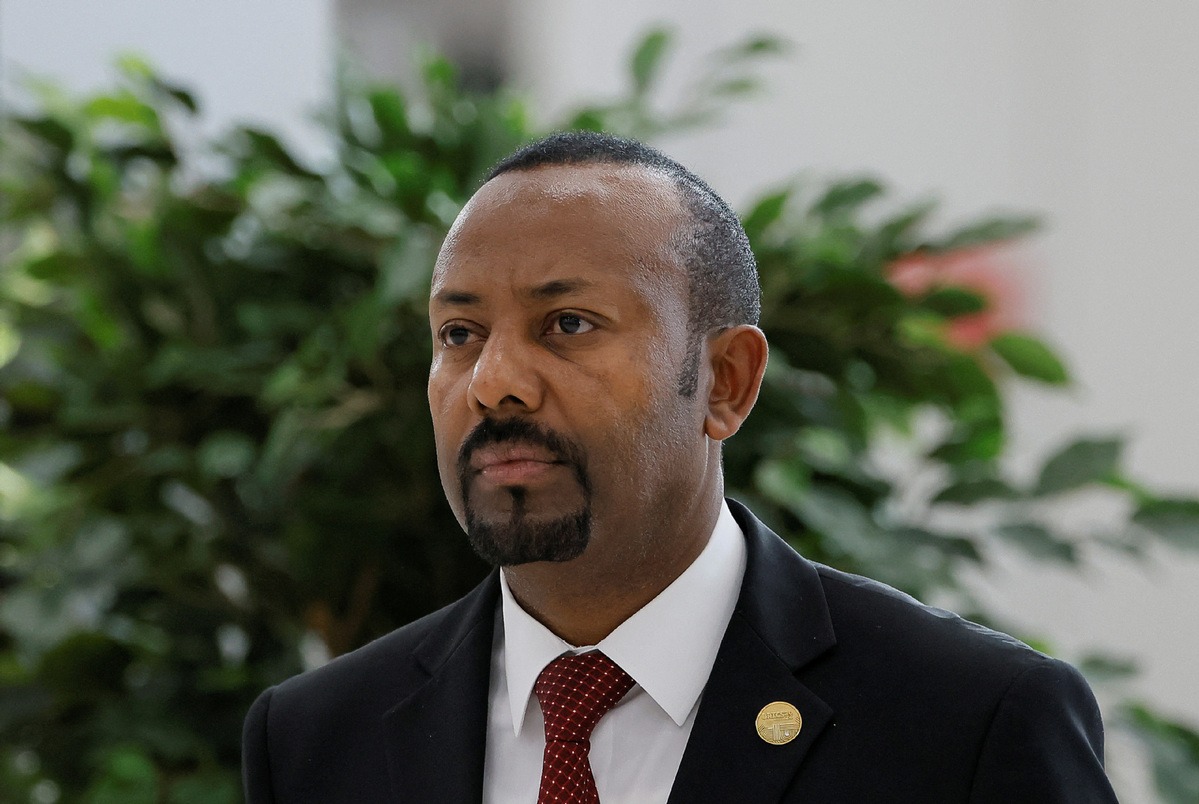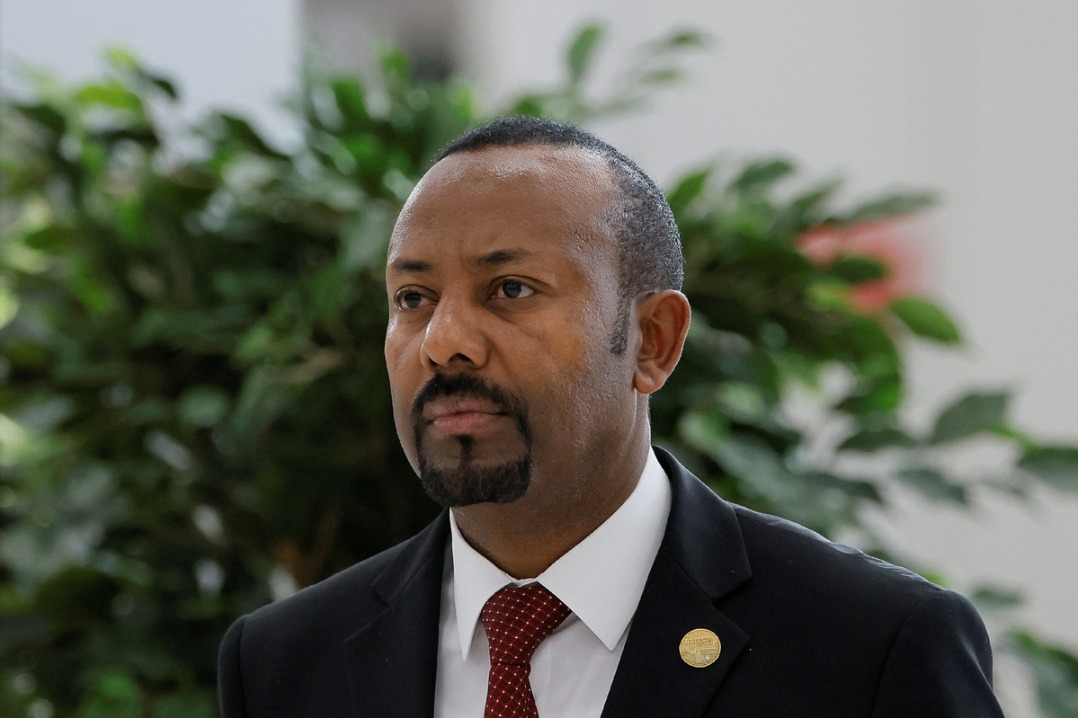Ethiopia aims for increased investment from countries


Ethiopia is anticipating more economic benefits after joining BRICS, while expecting the grouping that represents developing countries to play an increasingly important role in building a more just and inclusive world order.
Ethiopian Prime Minister Abiy Ahmed, in a video message sent to the plenary session of the BRICS Business Forum, which was held in Moscow on Oct 17 and 18, urged the BRICS member states to take advantage of the many investment opportunities in the East African country.
He said Ethiopia's economy presents significant opportunities for BRICS countries in investment, economic cooperation and trade, calling for investments in areas including manufacturing, renewable energy, mining and tourism.
"These industries hold enormous potential for growth and innovation, and by investing in these areas, BRICS countries can benefit from Ethiopia's strategic position as a gateway to the African countries while contributing to our shared development objectives," Ahmed said.
He added that Ethiopia is endowed with abundant natural and agricultural resources that offer access to large and diverse markets across Africa and beyond.
"Ethiopia has implemented bold economic reforms aimed at making the economy more business-friendly. These transformative measures include the liberalization of key sectors such as telecommunications and finance," he said.
Mukerrem Miftah, assistant professor at Ethiopian Civil Service University, said in a recent interview with Xinhua News Agency that Ethiopia's membership in BRICS will scale up its bilateral and multilateral relations with the group's members, especially China, the world's second-largest economy.
He said the BRICS mechanism gives member states a sense of stability, predictability and strategic oversight, and facilitates strong and lasting relations among them.
"Ethiopia has more than 120 million people. ... I believe many countries of BRICS would benefit from the market opportunity this population can offer," Miftah said.
Research findings published recently on ResearchGate, a European commercial social networking site for scientists and researchers, said Ethiopia's engagement with BRICS is driven by the desire to leverage opportunities for trade, investment, technology transfer and knowledge exchange.
Researchers said that Ethiopia seeks to leverage the potential for sustained economic growth while addressing its development obstacles, including skills shortage and inadequate infrastructure.
Ahmed, the Ethiopian prime minister, said that in order to create a more conducive environment for foreign direct investment, his country has adopted a market-based foreign exchange regime. The changes are designed to ensure that the country is well equipped to compete in the global market as well as to offer significant returns to investors, he said.
Furthermore, Ethiopia is firmly committed to the implementation of the 2025 program for BRICS economic partnership, which seeks to promote sustainable development as well as economic, social and environmental progress in a balanced and integrated manner, he added.

































